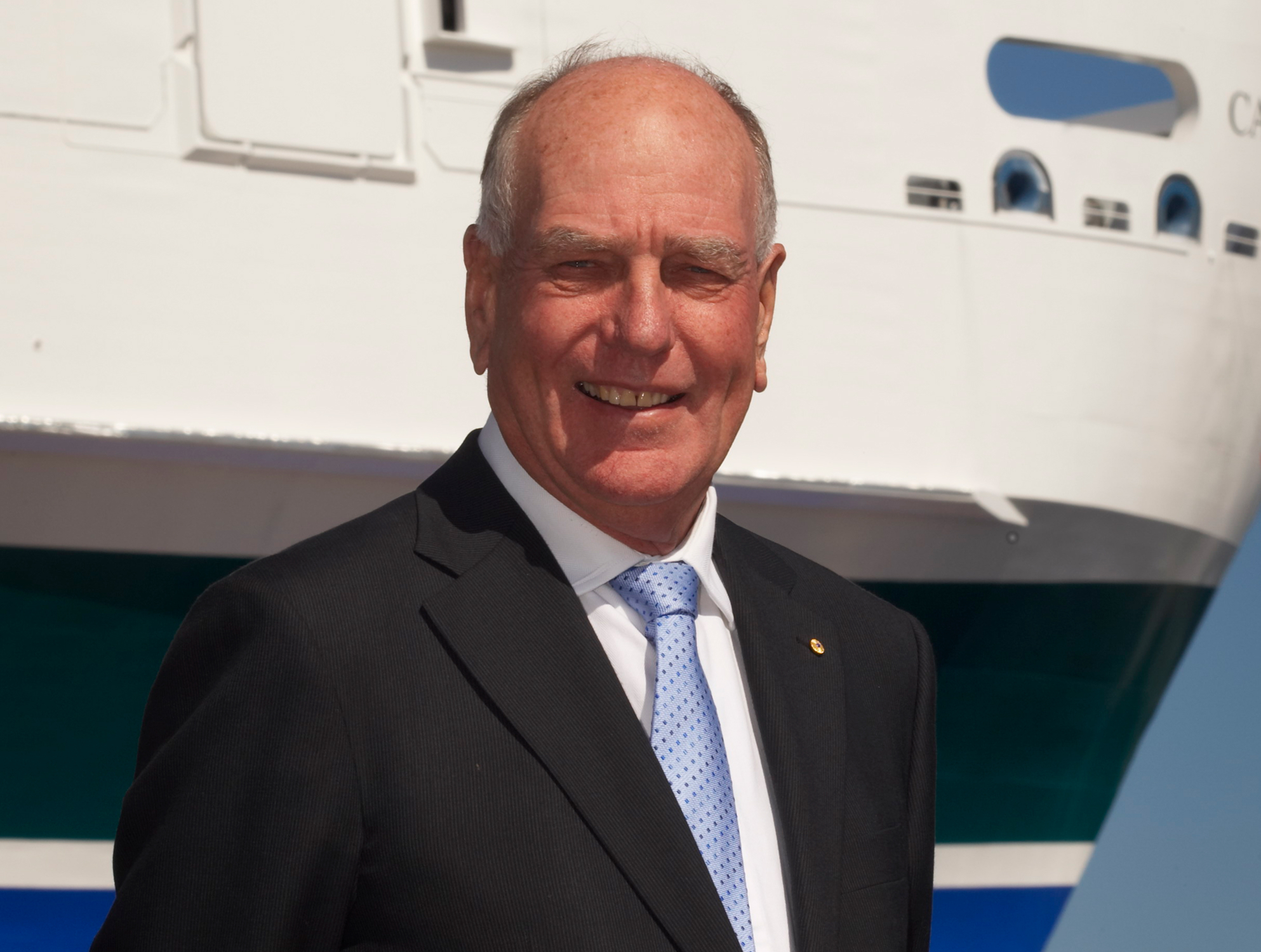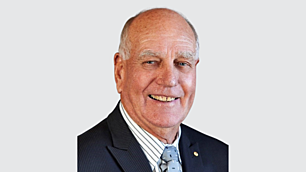How John Rothwell built Austal into a $2 billion shipbuilding powerhouse
John Rothwell didn’t come from money, speak English when he arrived in Australia at age 10, or even finish high school. But with an engineer’s mindset, builder’s hands, and a clear vision, he transformed backyard boat repairs into Austal (ASX: ASB) — a $2 billion global defence and shipbuilding powerhouse.
From welding balustrades to landing multi-million-dollar defence contracts across the US, Europe and Asia, Rothwell’s journey is a lesson in entrepreneurial grit, strategic scaling, and staying true to your values through rapid growth.
On Euroz Hartleys Ltd Finding the Front podcast (link available at bottom of wire) he shares how a teenage obsession with woodworking - born of necessity - sparked a lifelong drive to build. Below, I summarise the highlights of the podcast.
“My birthdays, I always requested a saw or a plane - woodworking tools,” Rothwell recalls.
“I made a fair bit of the early furniture we had in the house.”

Capital discipline and strategic timing
Austal was launched in 1988, with just $200,000 in capital and three of Rothwell’s former colleagues.
“It’s laughable by today’s numbers,” he admitted. “But it was enough. It’s not about capital so much – it’s about determination.”
Austal differentiated itself through a focus on aluminium construction and fast ferry design. Asian operators, particularly in China, were undergoing a modernisation of their fleets, providing Rothwell with an integral opportunity. His prior international exposure while at Queensland Merchant Holdings had revealed an emerging demand.
That first Chinese contract, worth approximately US$4-5 million, came with a substantial compromise: Austal had to provide full refund guarantees.
When no one else would back them, Standard Chartered stepped in, leading to more than 50 vessel sales into China – a cornerstone market that gave Austal both cash flow and credibility.
Pivot to defence: a strategic inflexion point
Rothwell knew the cyclical nature of the growing commercial ferry market.
“Clearly, anyone in business realises if you’re stuck in one market segment and one location, you’re at risk,” he said.
Austal diversified both geographically and by product, moving into paramilitary craft for Australia’s Customs, and then structurally into the United States.
However, the U.S. proved to be uniquely challenging. The Jones Act prevented foreign-built vessels from operating on U.S. domestic routes. Rothwell’s solution: set up operations in Mobile, Alabama, and enter into a joint venture with General Dynamics to access military tenders.
A major opportunity presented itself after the bombing of the USS Cole in Yemen in 2000. High-speed, shallow water combat ships were in demand, with Austal having the right design. Rothwell, with 60 Australian engineers, redesigned a commercial trimaran ferry into the Littoral Combat Ship (LCS). Since, Austal has built 19 LCS vessels and 15 Spearhead-class transports for the U.S. Navy.
“The Navy recognised what we could do. They paid for the design, supported the production, and later removed General Dynamics as prime so we could deal directly,” Rothwell said.
This decision was a pivotal movement in Austal’s transition from subcontractor to Tier 1 defence prime.
Capital markets and scaling globally
Chasing expansion, Rothwell took Austal public in 1998. The IPO coincided with mezzanine investor Bill Ferris (Australian Mezzanine Investments) exiting after injecting $15 million for a 30% stake in 1994.
“We could have bought him out, but we’d have been cashless,” Rothwell said. “The listing gave us the capital and profile we needed.”
It also brought institutional governance. “As business grows, you need different skills – especially dealing with regulators. We brought in professionals with that background,” he said.
Today, Austal has more than 5,000 employees across its operations and has diversified into steel shipbuilding, autonomous vessel development, and most notably, submarine module construction for the U.S. Navy.
Recent strategic wins include a $450 million grant from the U.S. Department of Defence to build a submarine module manufacturing base, underscoring its rising relevance in the U.S. defence industrial base.
Innovation as a competitive moat
Austal’s early key advantage was building lighter, faster, aluminium vessels.
Today, Austal remains competitive in design and systems integration. Through heavy investment in software development, naval architecture, and autonomous capability, including converting its own Armidale-class patrol boat into an unmanned vessel for the Australian Navy.
“I’ve always realised that unless we stayed ahead of the field, someone would catch up and bypass us,” Rothwell said. “So we invested early in R&D, and the culture followed.”
Valuation, vision and the view forward
With increasing geopolitical tensions and a growing focus on defence capabilities, Austal is well-positioned to benefit from durable, long-cycle contracts, particularly in the U.S. and Australia. Exposure to commercial markets has reduced, but the earnings profile has become significantly more predictable.
Rothwell, now 81, stepped down as chairman in 2024, but still attends the office most days. “It’s my baby,” he said. “It’s hard to walk away from.”
For investors, Austal represents a rare combination on the ASX: high barriers to entry, long-term government customers, and a founder-led culture that has scaled without compromising execution.
Over nearly four decades, Rothwell has delivered a blueprint for industrial resilience – one that began not with a strategy deck, but with a single homemade boat and a belief that “nothing is out of reach.”

5 topics
1 stock mentioned
1 contributor mentioned

